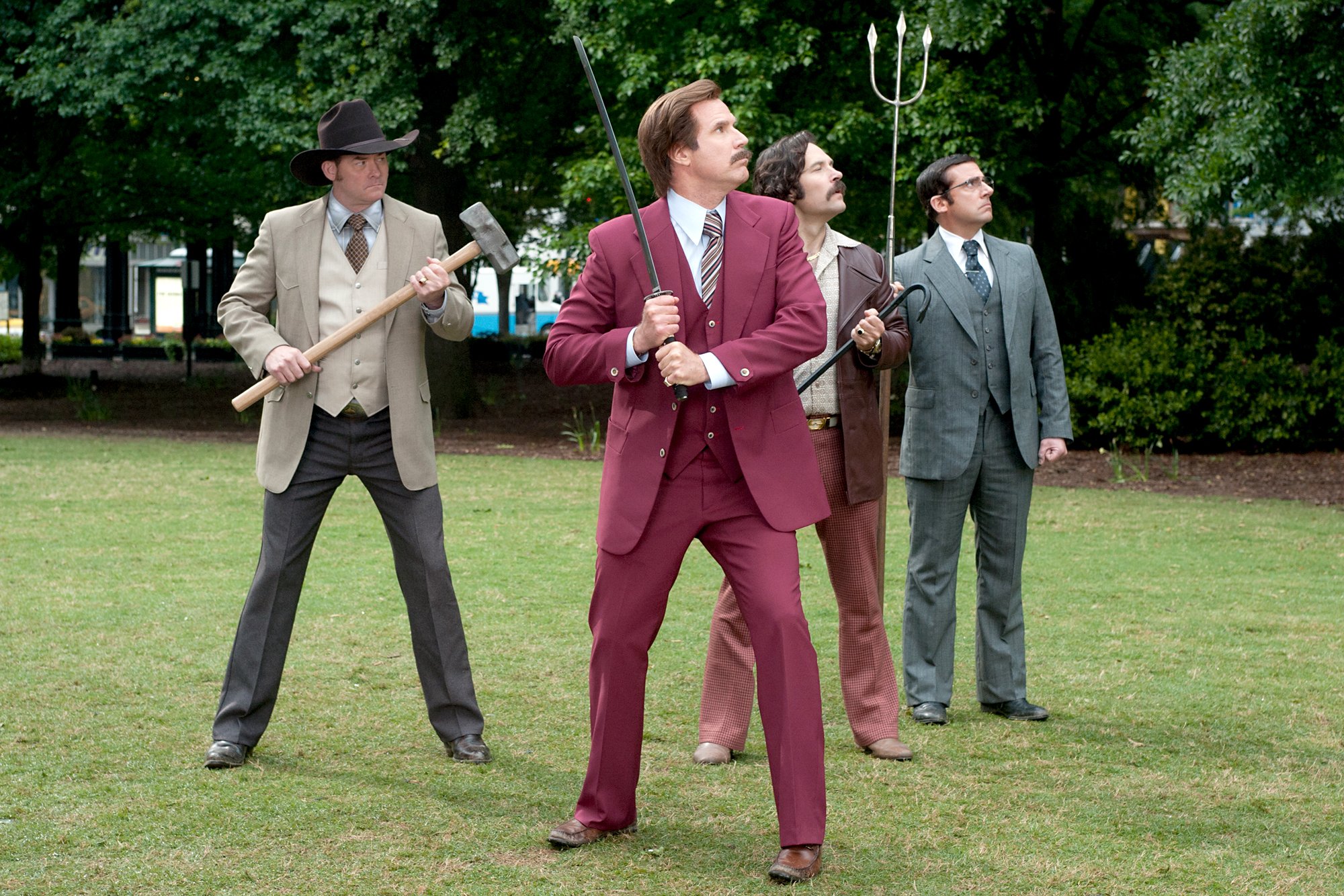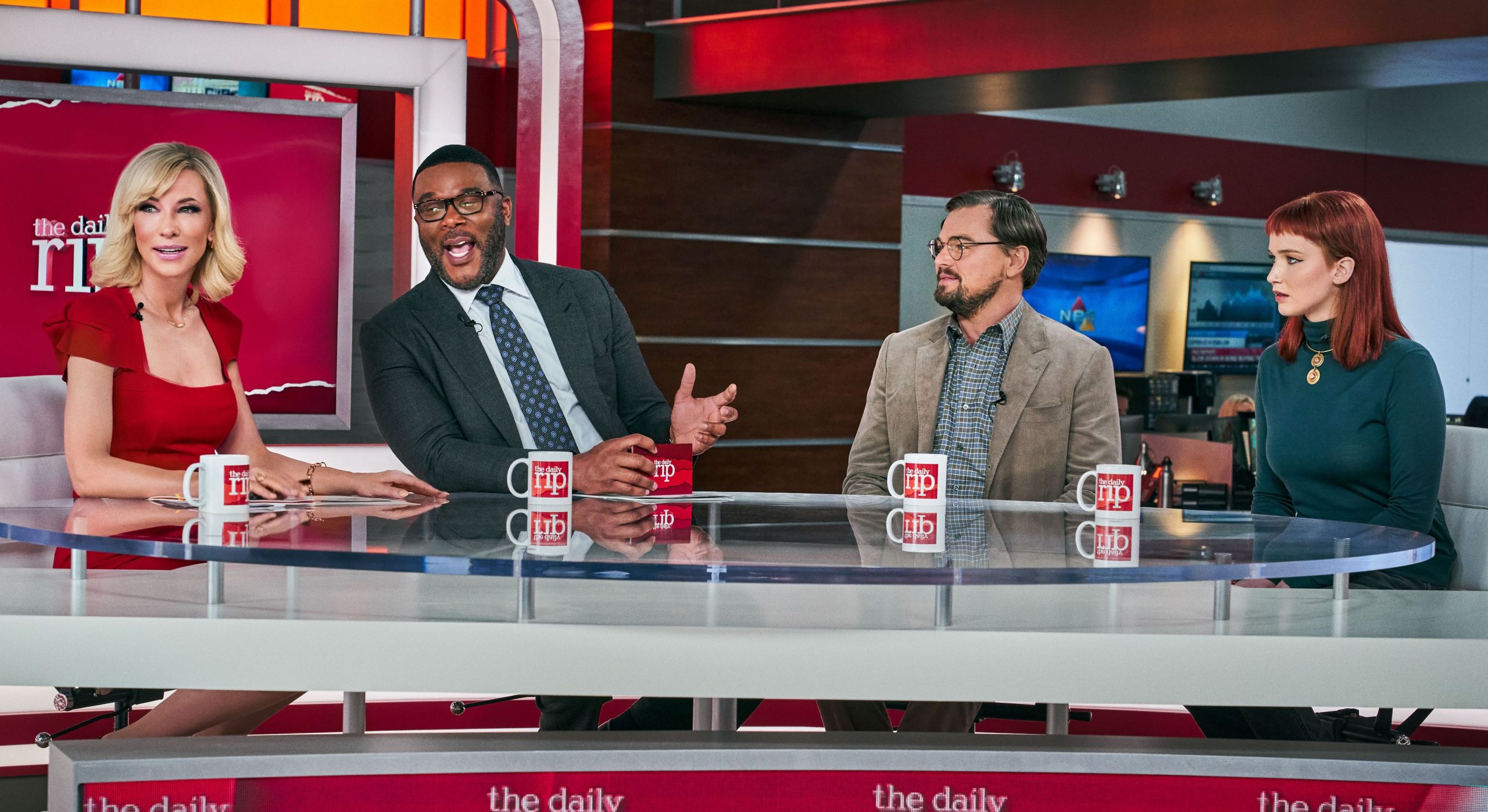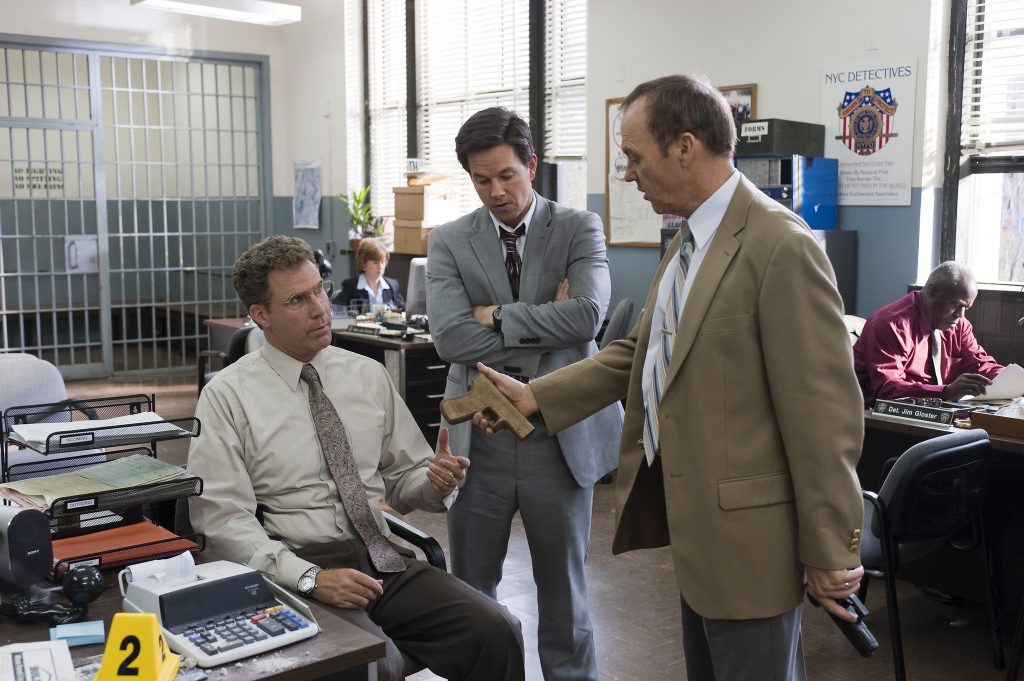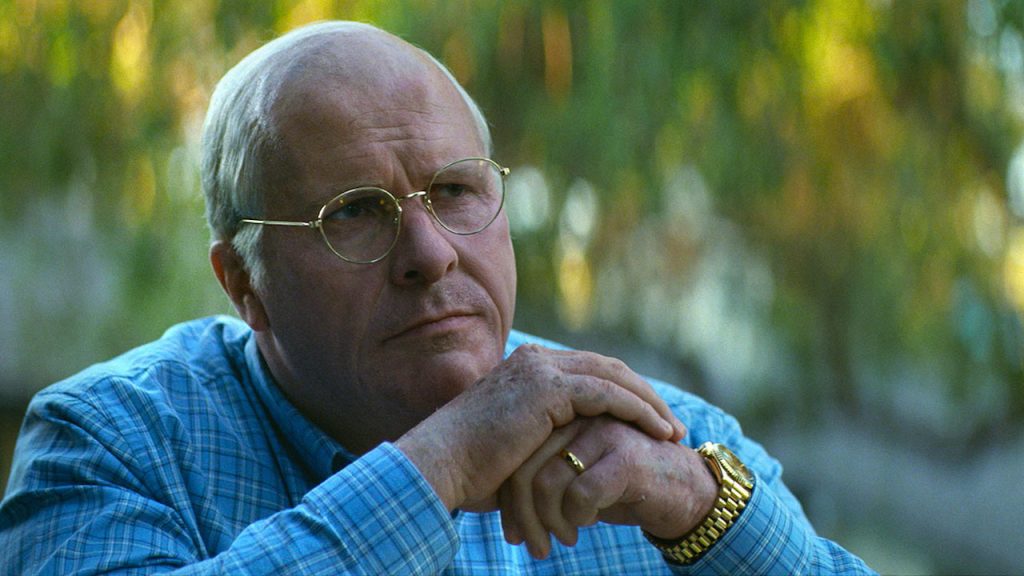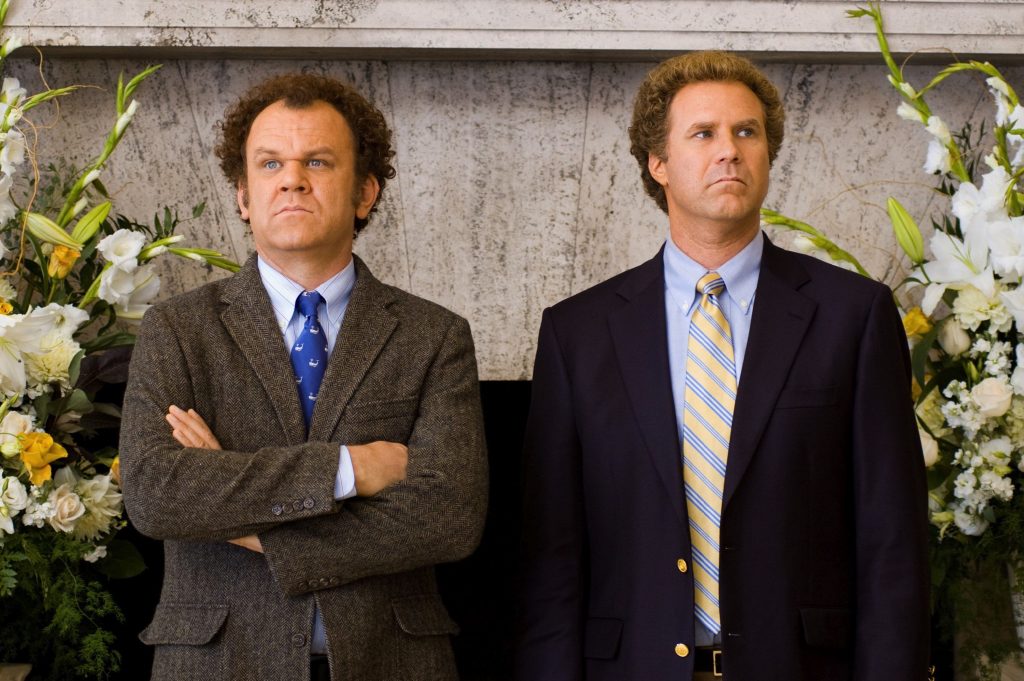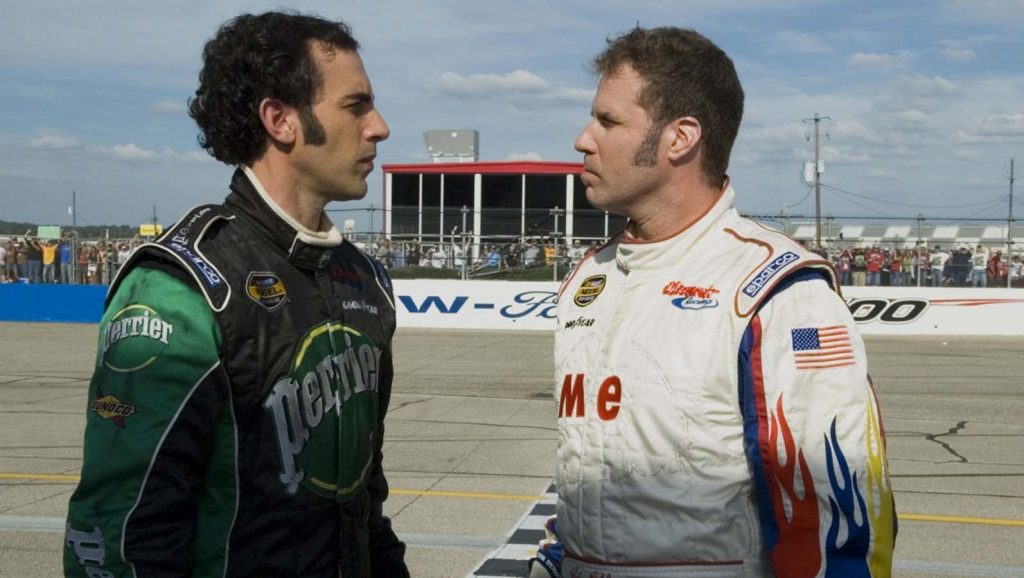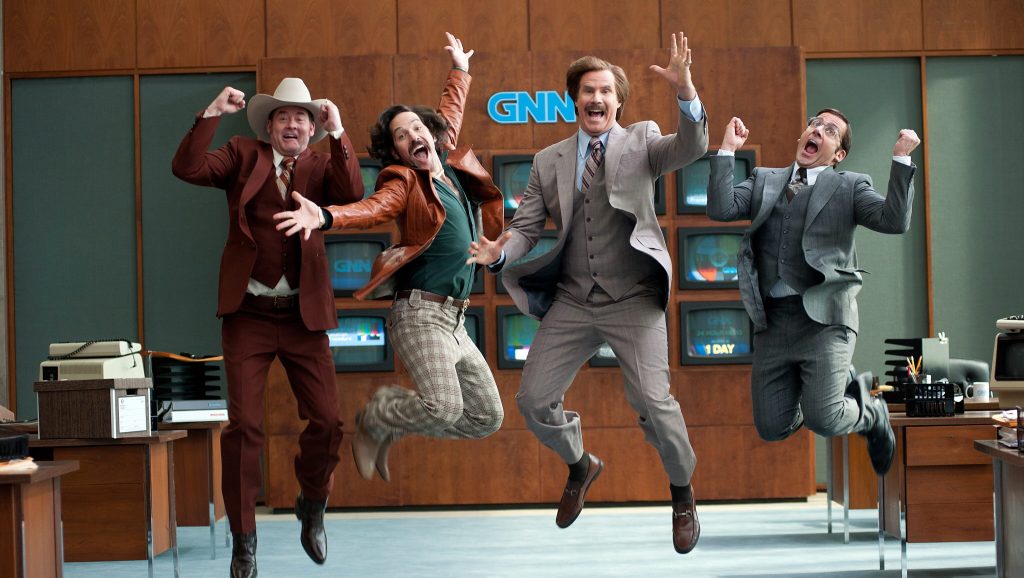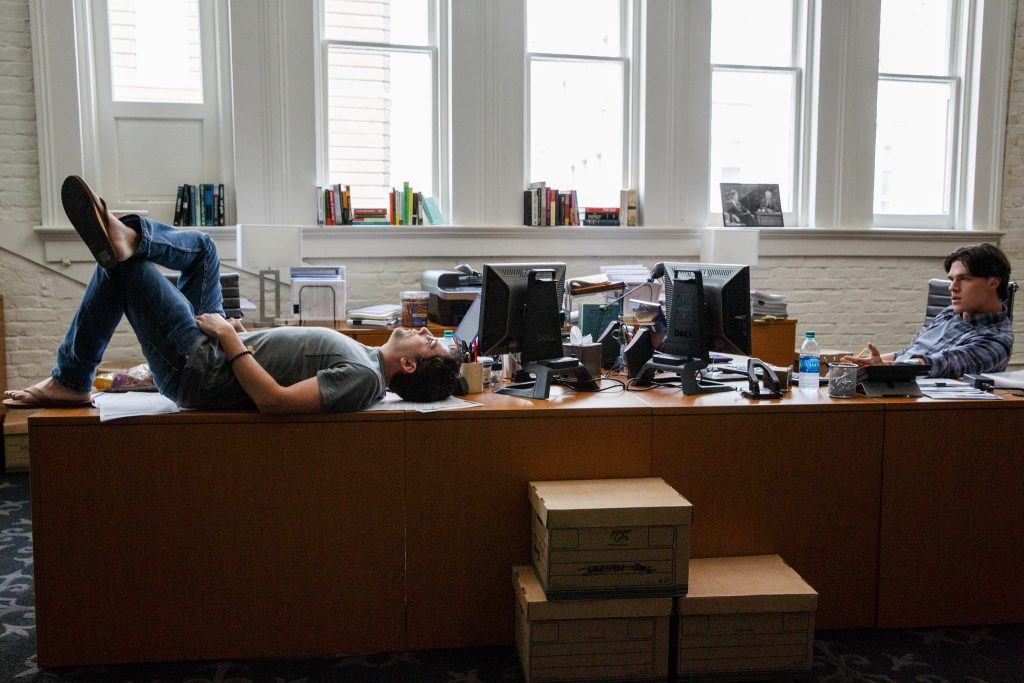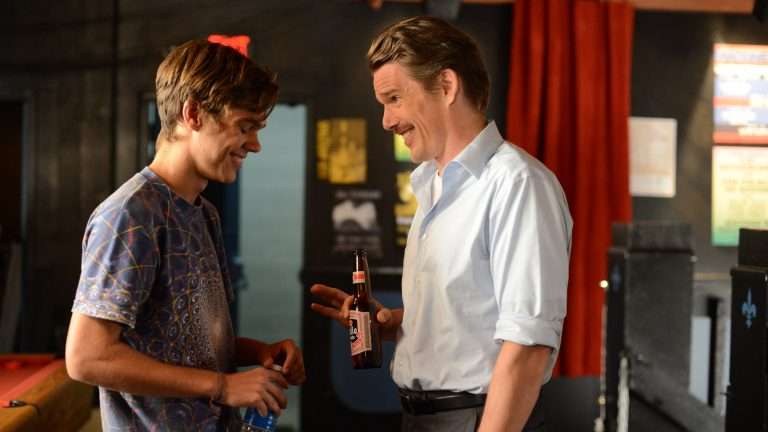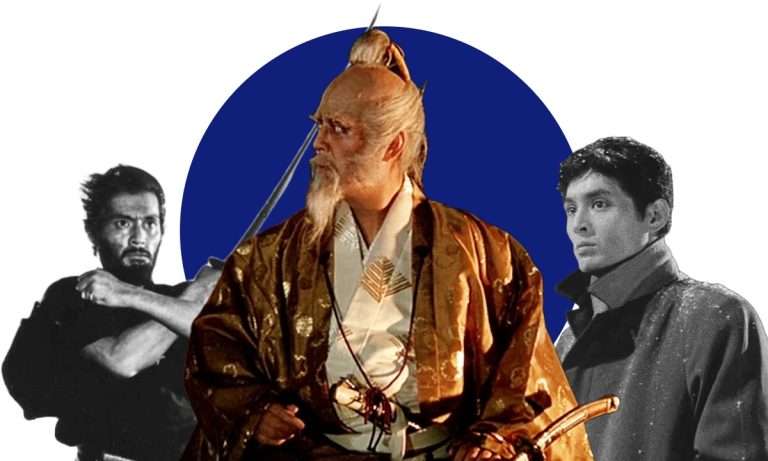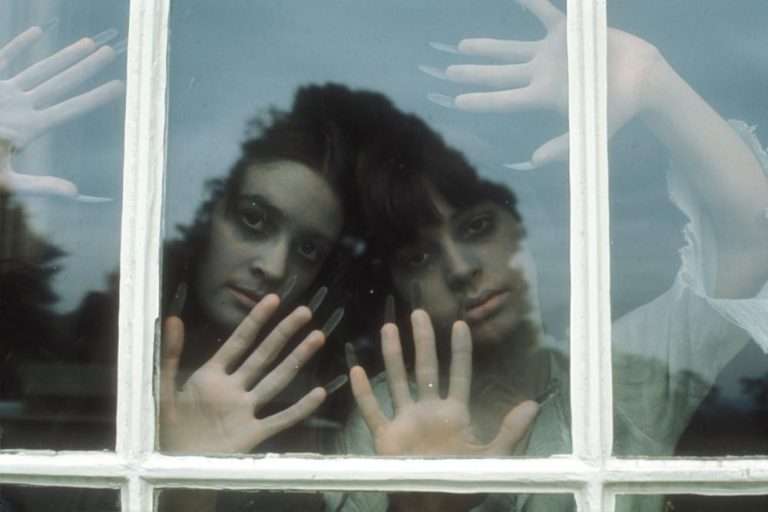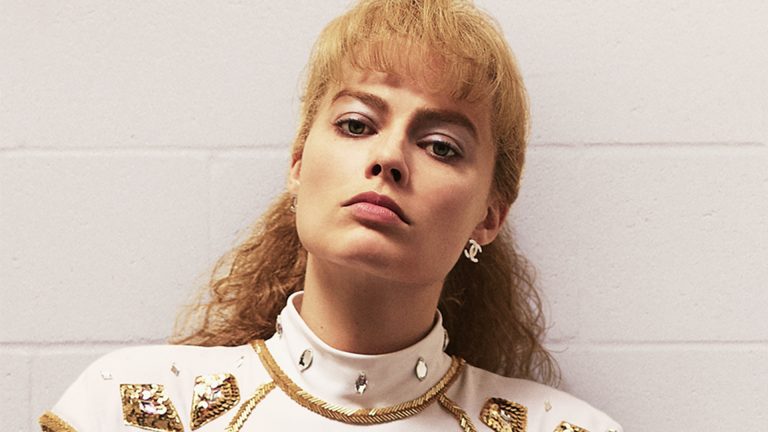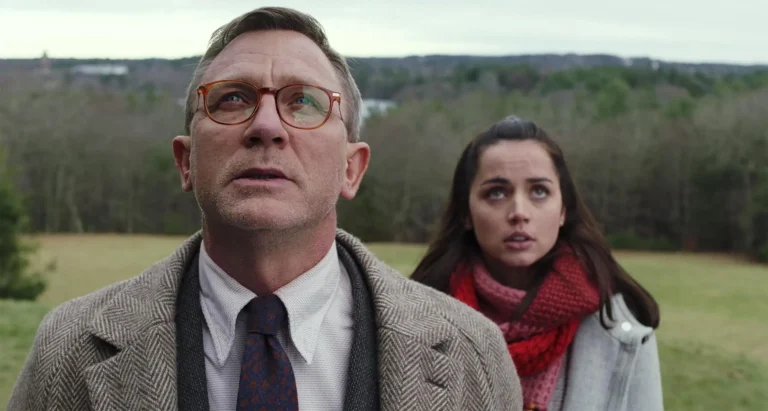From his origins as a writer for Saturday Night Live, including a three-season run as head writer in the late 1990s, during which time he helped bring in lauded cast members like Tina Fey and Will Ferrell, Adam McKay has fashioned himself one of the most impressive resumes in the entertainment industry, so impressive, in fact, that in a career that has lasted almost 30 years, it’s surprising to learn that he has only directed eight feature films.
Aside from being one of the busiest men in Hollywood, he’s also demonstrated that he’s one of the funniest and most insightful, with his string of comedies starring Ferrell proving to be some of the most popular and financially successful of the 21st century. McKay’s gradual transition to social satirist in the mid-2010s has been even more impressive, as he has since been able to gleefully and unabashedly criticize some of the worst elements of American culture, and some of the worst people, while maintaining a signature sense of self-enjoyment and satisfaction. Add to that his helming of the popular Internet site, Funny Or Die, and his return to television as executive producer of acclaimed series like Eastbound & Down and Succession, and it’s clear that McKay has no intention of limiting himself or slowing down.
Although he has recently lost some sight of his intentions through his disposition towards saying as much as he can, when he can, the ideas he consistently brings into focus have never been any to scoff at. Even when his filmmaking appears to lack nuance, it’s no one’s place to say he is a bad filmmaker. With his recent success with Don’t Look Up, which has been breaking viewership records on Netflix left and right despite mixed reviews, and with the anticipation of his upcoming HBO miniseries, Winning Time, which will track the Magic Johnson- and Kareem Abdul Jabbar-led Los Angeles Lakers dynasty of the 1980s, a proper ranking of McKay’s directorial efforts is most definitely in order, one that encapsulates what makes his lesser films only so-so and his greater films bonafide works of art.
8. Anchorman 2: The Legend Continues (2013)
Side effects of McKay’s particular brand of self-indulgent, high-key humor may include, among other things, a bizarre sense of unpredictability. It’s this quality that immediately distinguishes Anchorman 2: The Legend Continues from the rest of his catalog, what with it being the only sequel he has directed up to this point in time. Given the monstrous success of the previous film, its legacy firmly planted in the garden of popular culture, McKay and Will Ferrell’s follow-up operates with the foresight of understanding that its only chance to achieve even a modicum of greatness is to maintain a proven winning formula. Unfortunately, this is also the very quality of Anchorman 2 that ends up derailing it, as the viewer’s baseline understanding of the Anchorman universe’s most important principles only serves the film’s tedious and predictable nature rather than any kind of meaningful narrative extensions that could have been reasonably accomplished.
Related to Adam Mckay Movies: Battle of the Sexes (2017) Review
Granted, the film is certainly palatable, with many of its numerous pleasures stemming from the return of Ferrell’s immortal alter ego Ron Burgundy and his equally memorable news team. Ferrell, alongside the individual quirks and improvisations of Paul Rudd, Steve Carrell, and David Koechner, is in as fine a form as you can expect him to be when reassuming the mantle of his most beloved character, but the meandering story surrounding him plods along at a significantly slower pace than that of the original film, which is consistently undermined when having to serve as the underpinning for many of its sequel’s unoriginal bits of comedy.
Sequels to runaway hits have certainly taken longer than nine years to see the light of day, but critical favors are easier to hand out when the foundational work is treated with the respect it deserves. Plus, with McKay frequently using the film as a test run for his eventual transition into more politically-aligned satire through his admirable, if somewhat limited, exploration into the moral and cultural ramifications of 24-hour news, it’s obvious that Anchorman 2 can’t hope to match its originator for laughs, meaningfulness, or, given its overall dullness, even absurdity.
7. Don’t Look Up (2021)
If there’s one thing that uniformly works about Don’t Look Up — few things actually do other than its tip-top all-star cast — it’s the title. It perfectly captures the near-sightedness and self-serving outlook on politics, media, and culture that McKay takes aim at in this doomsday satire, in which a pair of frantic astronomers (Leonardo DiCaprio and Jennifer Lawrence) attempt to spread awareness of a “planet-killing” comet that is heading directly toward Earth and its increasingly apathetic population. In fact, if McKay’s intent with the film was to gleefully indict those individuals who, rather than utilize their powerful status to make a difference, only end up trivializing matters, either through sheer distraction or their inability to see past how crises only affect them and their immediate surroundings, then it would be the instinct of many to call Don’t Look Up an instant classic.
Related to Adam McKay Movies: 10 Best Leonardo DiCaprio Movies
Unfortunately, despite many global issues, including recent surges in COVID-19 cases, along with the equal mixture of concern and indifference toward climate change, providing an all but perfect backdrop for it to make a lasting impression, Don’t Look Up consistently undermines itself by making McKay’s intention very unclear. Replacing cheeky wittiness with an outlandish premise and a clear lack of subtlety, its ambition hampers its execution through an uneven and often mean-spirited mockery of American politics, the peripheral vision of the news, social media addiction, and celebrity worship. Just to name a few. Perhaps the overload of celebrity appearances in the film is fitting, then, especially since the image of seeing so many major talents, ranging from awards darlings like Meryl Streep to classic character actors like Tyler Perry and Ron Perlman, co-exist together on screen is a joy to behold.
However, the entertainment value of such a large ensemble comes at the expense of a few of them contributing anything worthwhile to the plot. Anyone who makes an even remote impact on the events that unfold is undercut by those who exist to sideline the main narrative in a series of subplots that serve little purpose other than to drag things along, convincing the more naïve viewer that the tension of the film’s ticking clock has been heightened when it actually fizzles out long before the film’s grating runtime has reached its end.
6. The Other Guys (2010)
Despite its legions of Millennial and Gen Z fans, it has to be said in the sincerest way possible: The Other Guys is just okay. And that kind of sentiment largely boils down to the fact that, in hindsight, Will Ferrell and Mark Wahlberg’s comedic chemistry simply isn’t there. There’s no denying the film’s role in renewing interest in the buddy cop subgenre, and the two have no problem owning their respective characters, with Ferrell as the affable, naïve forensic accountant, and Wahlberg as his hot-headed, overly ambitious partner who is desperate to be where the action is. It’s a great gesture of irony, then, that the film loses its footing once the two detectives decide to investigate an embezzlement scandal headed by an eccentric billionaire played by Steve Coogan. You may chalk it up to the lack of a resolute payoff within this investigation, or even a missing aura of general excitement and intrigue, but the fact of the matter is that there are far more interesting things happening in The Other Guys that either occur independent of Ferrell and Wahlberg, or include one, but not both, of them.
Similar Read to Adam Mckay Movies: 10 Best Movies Based on TV Shows
There are a few genuinely funny moments within the film, most of which are largely limited to the first half-hour. Who can forget the hilarity of the narrative’s inciting incident, in which Dwayne Johnson and Samuel L. Jackson completely chew the scenery as a pair of hotshot cops who make the questionably ill-fated decision to “aim for the bushes?” And, of course, there’s the levity of their subsequent wake, which is interrupted by a silent scuffle between Wahlberg and Rob Riggle fighting to determine who will be the new superstars of the NYPD.
Throw in Michael Keaton as the TLC-quoting Captain with a side hustle at Bed Bath & Beyond and you’ve got what really would be a great comedy if the leading men, at the time, had a better understanding of each other’s approach. Especially since Ferrell’s casting against type makes him far more enjoyable to watch, both in comparison to his louder, more bombastic personalities of old and to Wahlberg, who plays it straighter as the kind of character audiences are well aware he is capable of bringing to life.
5. Vice (2018)
Although it may stick out like a sore thumb for being McKay’s most partisan and one-noted critique of a prominent American institution, Vice would feel like a lesser film if the attacks it makes on the reputation of Vice President Dick Cheney were not as unapologetic as they are when read on screen. Its blatant lack of subtlety actually does it a favor, unlike the likes of Don’t Look Up, because it purposefully refuses to stop and consider that there may be a smidgen of humanity to the figure it covers. It certainly doesn’t attempt to tread new ground in its perspective on Cheney, as it runs with the simple notion that he just plain sucks, but, despite its tonal awkwardness and occasional lack of focus, Vice nevertheless manages to contain its attacks to a select few elements of Cheney’s character before opting to ask some biting questions on what these elements say about the state of American politics during the War on Terror.
Related to Adam McKay Movies: 10 Best Christian Bale Movies
Much has been said and discussed about the phenomenal physical transformation that allowed Christian Bale to play the Vice President, but the ways in which Bale taps into Cheney’s mental state are just as impressive, as he firmly convinces us that Cheney is one to see himself as the hero of the story, blind to the reality that he has set the entire world back. Of course, when someone like George W. Bush, played to comedic scatterbrained perfection by Sam Rockwell, can barely finish a sentence in a grammatically correct fashion, Cheney’s hard-nosed discipline inevitably finds a purpose, but the extent to which that purpose allows him to reap the reward is less clear in a world where everyone else pays the price for his ambition.
It has never been more obvious how willing McKay is to let his own politics impact the scope of a film, which occasionally muddies Vice’s waters, but he suggests, rightfully so, that the American public’s unyielding faith in the best of American virtue and our inalienable rights has clearly produced mixed results. In his mind, a voting populace can catch lightning in a bottle with the likes of FDR just as swiftly as they can counter flashes of greatness by throwing caution to the wind and betting on tyrants like Cheney.
4. Step Brothers (2008)
McKay’s career would have certainly panned out differently if his social satires got their points across with the same kind of childlike, borderline turbulent indifference that lines the innards of Step Brothers. Though conventional wisdom would tell us that Step Brothers is McKay’s most inconsequential film, it also remains one of his funniest and most instantly memorable works because of that very lack of resolve to the narrative. As it is, it’s oddly a film that understands not only what it is, but who its characters are, better than most, as this is the same depleted willpower that allows 40-year-old manchildren, Brennan and Dale, to function each and every day, even as their parents marry and force the two freeloaders to get along with one another. Of course, the two come to realize that they are more alike than either of them think once they are forced to take some stock of themselves and find jobs.
Related to Adam Mckay Movies: 10 Great Dysfunctional Family Films of the 2010s Decade
Growing increasingly ludicrous with each passing minute, but never in a way that comes off as tiresome or mundane, Step Brothers often lives and dies by the unmatched chemistry between Will Ferrell and John C. Reilly, who, despite playing characters whose immaturity verges on prepubescent, prove their versatility as seasoned actors by stretching their physical comedic capabilities to the limit. Whether it’s through their childish pranks on one another, their ill-fated attempt at constructing bunk beds, or even their rap aboard a doomed sailboat, the sincerity of their performances is matched only by the frustrated impatience of Richard Jenkins and Mary Steenburgen as parents Robert and Nancy, along with Adam Scott as Brennan’s callous younger brother, Derek.
Much like a kid with scissors — or, hell, Brennan and Dale with a pair of scissors — McKay takes such a simple premise and runs with it with reckless abandon, so much so that it’s quite extraordinary that he is able to not only engineer a reasonable, well-paced narrative from it but even more so that none of the characters are wasted or cast to the side during the film’s descent into suburban surrealism. There is absolutely no reason a film like this should work, yet it absolutely does.
3. Talladega Nights: The Ballad of Ricky Bobby (2006)
Perhaps McKay’s most tangible film, both visually and narratively, the jabs that Talladega Nights takes at the male superiority complex and hick culture indelibly linked to the world of NASCAR are frequently matched by the pure thrill of its electrifying racing sequences, which somehow, given its subject matter, ironically makes it a more fitting examination of 21st-century America than Vice. Will Ferrell leads McKay’s second film as talented, but self-absorbed stock car champion Ricky Bobby, who finds his confidence shaken by the arrival of French Formula One driver Jean Girard (Sacha Baron Cohen) onto the NASCAR scene.
McKay is fully committed to the act through his unparalleled usage of contemporary branded racecars and his inclusion of numerous cameos from NASCAR drivers and broadcasters, demonstrating an admiration for the American phenomenon that is more than enough to rival his confusion over the country’s obsession with it and his contempt for the corporate influence that has overtaken the sport. Talladega Nights equally aims its crosshairs for many a sports film cliche as well, capturing Ricky’s fall from grace and his return to the top in both conventional and ridiculous fashion, filling in the cracks with zany misadventure after misadventure as he gets his groove back and heads for the Talladega 500.
Fully solidifying Ferrell as the preeminent comedic leading man of his generation, it also laid the groundwork for his partnership with John C. Reilly, who holds his own as Ricky’s best friend turned frenemy, Cal Naughton, Jr., and served to introduce a more visually captivating side of McKay in the way he parlays the two’s charisma and comfortability with one another into a series of high stakes races that still find time to let the two be their expectedly goofy selves. The end result cannot help but be viewed from within the shadow of Anchorman, especially since the certain plot and character elements are borrowed from it, but it radiates so much high octane energy and such a warm heart that the similarities neither present themselves outright nor do they do much to alter the viewer’s impression of the film.
2. Anchorman: The Legend of Ron Burgundy (2004)
If Helen of Troy launched a thousand ships, then Ron Burgundy launched a thousand memes. That along with thousands of shirts, coffee mugs, and impressions that never seem to get Will Ferrell’s debonair and, dare I say it, “classy” inflection quite right. Not to mention, a collection of one-liners for the ages. After almost two decades since its release, Anchorman has become so comfortably ensconced in the history of film comedy and overshadowed by its own cultural impact, that it’s become rather effortless to overlook how downright hilarious it was, to begin with. Set in 1970s San Diego, the film finds Ferrell’s Burgundy wrestling to maintain his spotlight as the city’s most beloved news anchor, along with his misogynistic braggadocio, after the arrival of Veronica Corningstone (Christina Applegate), his station’s first female reporter.
Related to Adam McKay Movies: Spotlight (2015): Journalism as a Fighting Spirit
Unquestionably McKay’s most accessible and rewatchable film, Anchorman is a film that is at its best when quietly skewering and deconstructing gender politics in the workplace, which is a testament to how intertwined Ferrell has become to the character he plays. His knack for improvisation shines through as he casually revels in Ron’s arrogance and glorious insensitivity, but is more than willing to let himself be the butt of the joke by overextending many of his character’s quips and off-putting behaviors. Such is the talent of McKay and his ability to create such a fast-and-loose environment for his ensemble to essentially do what they want before putting everything together after the matter.
The ability of the cast, at the time a collection of relative newcomers, to construct such larger-than-life personalities on their own terms has not only solidified Ferrell’s legacy, but has also made worthy stars of the rest of the Channel 4 News team, not the least of which being Steve Carrell, who became the film’s understated breakout star as dim-witted weatherman Brick Tamland, whose buffoonish personality would undoubtedly go on to influence Carrell’s acclaimed performances in The 40-Year-Old Virgin (2005) and The Office (2005-2013).
1. The Big Short (2015)
Whereas Vice mostly succeeds despite the uphill battle it is forced to climb in its satirical depiction of people the viewer is surely familiar with, given the shadows, they cast over 21st-century politics, The Big Short tops this list as McKay’s current masterstroke because it gives the writer-director full rein to tell the then-largely unknown story of the 2008 housing market crisis, and those who profited from the resulting economic collapse, in any way he deems best fit. Adapting the non-fiction book of the same name by Michael Lewis, it is, by and large, his most narratively and stylistically inventive film. McKay grants himself full autonomy as a storyteller by condensing some of the narrative’s more complex elements and terminology into language that can be understood by all, humorously elevating his didactic approach through clever fourth wall breaks, unreliable narration, and numerous celebrity cameos from the likes of Margot Robbie and Anthony Bourdain, among others.
Related to Adam McKay Movies: 10 Best Brad Pitt Movies
Ostensibly giving the viewer an entry-level economics lesson while simultaneously entertaining them through some of his most scintillating dialogue, few of McKay’s creative artifices are at a disservice to the film’s astute awareness of its own artificiality — some characters are willing to admit to the viewer that they are, indeed, full of it — which, in turn, provides a greater sense of conviction in its assessment of the mistrustful individuals at the heart of the story.
Marking the first time that McKay would completely transition from off-kilter comedian to scathing social critic, The Big Short is, ironically, the only film of his that manages to combine the two facets of his filmmaking sensibilities so uniformly that his subsequent efforts to do the same have all paled in comparison while unintentionally missing their mark. Not only does he manage to wring out a slew of wryly humorous performances from typically dramatic actors being cast against type, including Christian Bale, Ryan Gosling, and Brad Pitt, but McKay’s clear passion for the material and his desire for others to understand the world they live in helped net him an Academy Award for Best Adapted Screenplay amongst a host of other nominations. If that’s not a clear indication of his evolution as a cinematic storyteller, then what is?
That was our list of All Adam McKay Movies ranked from worst to best. Let us know in the comments how would you rank his films.

